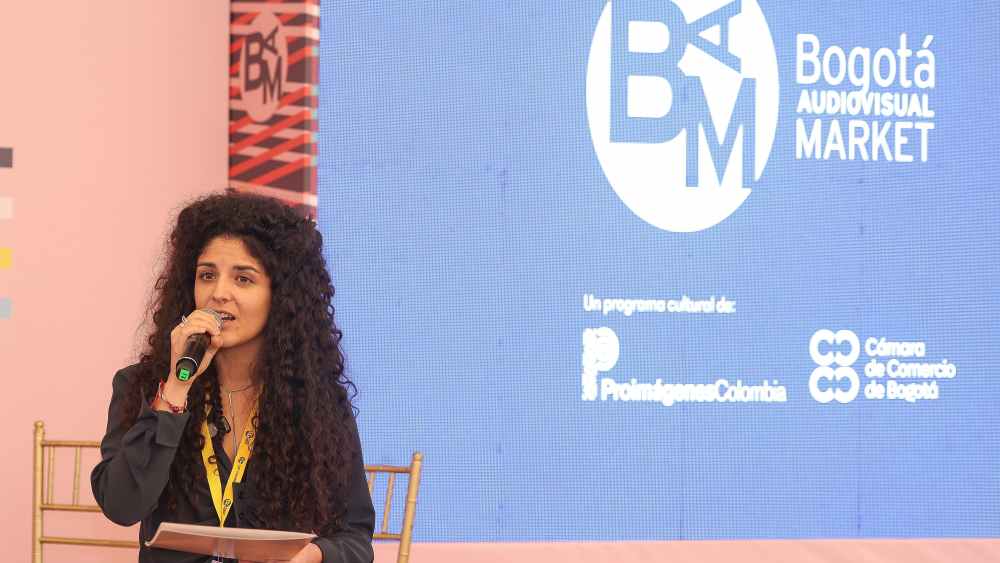It’s been a long time coming. Spain and Colombia, two territories offering some of the most enticing location incentives in their respective regions, have inked an historical co-production treaty.
Through this treaty, unveiled July 15 during the Bogota Audiovisual Market (BAM), producers from both countries will be joining forces, combining financial, technical and artistic resources to create joint audiovisual productions.
According to Diana Díaz, director of audiovisual, film & interactive media of Colombia’s Ministry of Culture, it indeed marks the first time Colombia has signed a bilateral co-production agreement with Spain. However, both countries are also signatories of the Ibero-American co-production agreement, alongside several other participating nations, which has already spawned scores of joint productions between the two nations.
“The signing of the Colombia–Spain co-production agreement presents a strategic opportunity for producers in both countries to collaborate on stories that enrich the cultural catalogs of each nation, while expanding the reach and diversity of their audiovisual offerings. These shared narratives not only deepen cross-cultural dialogue but also tap into common creative ground – within a dynamic framework of rich, diverse storytelling,” she told Variety.
In opening remarks given by the Colombian Minister of Culture Yannai Kadamani and lgnasi Camos, the director general of Spanish film institute, ICAA, both agreed on the importance of this new accord, given the growing prominence of their respective industries.
“We can reflect on the history of our relationship, but we can also envision and construct alternative forms of engagement more horizontal, reciprocal modes of interaction, as well as collaborative and equitable approaches to audiovisual creation. This is a form of creative expression that not only narrates our shared history but, ideally, also serves as a platform for projecting ourselves into the future. It is in this context that the significance of this signing becomes evident,” said Kadamani.
“We share a Hispanic heritage, of course, but one that now engages in dialogue with Latin American, Indigenous and Afro-descendant currents – an evolving exchange that is increasingly understood as a form of mestizaje or, as some have called it, the cosmic race,” she added.
Camos reminded the audience that there have been recent co-productions between the two countries, most notably Oscar-winning Fernando Trueba’s “Memories of My Father” and “Rains Over Babel,” which screened at Sundance and the Malaga Film Festival. The latter is by Gala del Sol, among Variety’s list of 10 Colombian Directors to Watch.
“For us, the signing of this agreement also represents a strategic commitment to the Colombian audiovisual sector, which, like its Spanish counterpart, is undergoing a particularly fruitful period marked by creative vitality and the development of projects with international recognition and prestige,” he noted.

Ignasi Camos, ICAA
In the panel that followed that included Diaz, Colombian producer Natalia Agudela Campillo of Madlove Group who moderated, ICAA’s Camilo Vazquez and Spanish producer Miguel Molina of Jaibo Films, Molina revealed that he was in the middle of a co-production with Colombia, the 3D animated feature titled “Desechable” directed by Colombia’s Carlos Gomez Salamanca.
“It’s been three years in development and what I’m most proud of is that Spanish institutions have supported this story – a story that is purely Colombian, directed by a Colombian filmmaker. The support we received from the Colombian Film Fund focused entirely on the strength of the story itself, not on who was behind it. We’ve also received support from Spanish public television, the Valencian Institute of Culture, MEDIA support and many other Spanish institutions,” he said.
“Once a Spanish-Colombian or Colombian-Spanish co-production is formalized and authorized by the Spanish side, it can be considered a national film in both countries and thus be eligible for support schemes available in the Republic of Colombia and, accordingly, in Spain. In this sense, we believe it’s a significant step forward, because we’re effectively playing on home ground. And that’s why I believe we’re making real progress in building a space with a lot of potential. Honestly, that’s probably the most exciting part,” said Vázquez, deputy director of promotion and international relations, ICAA.

